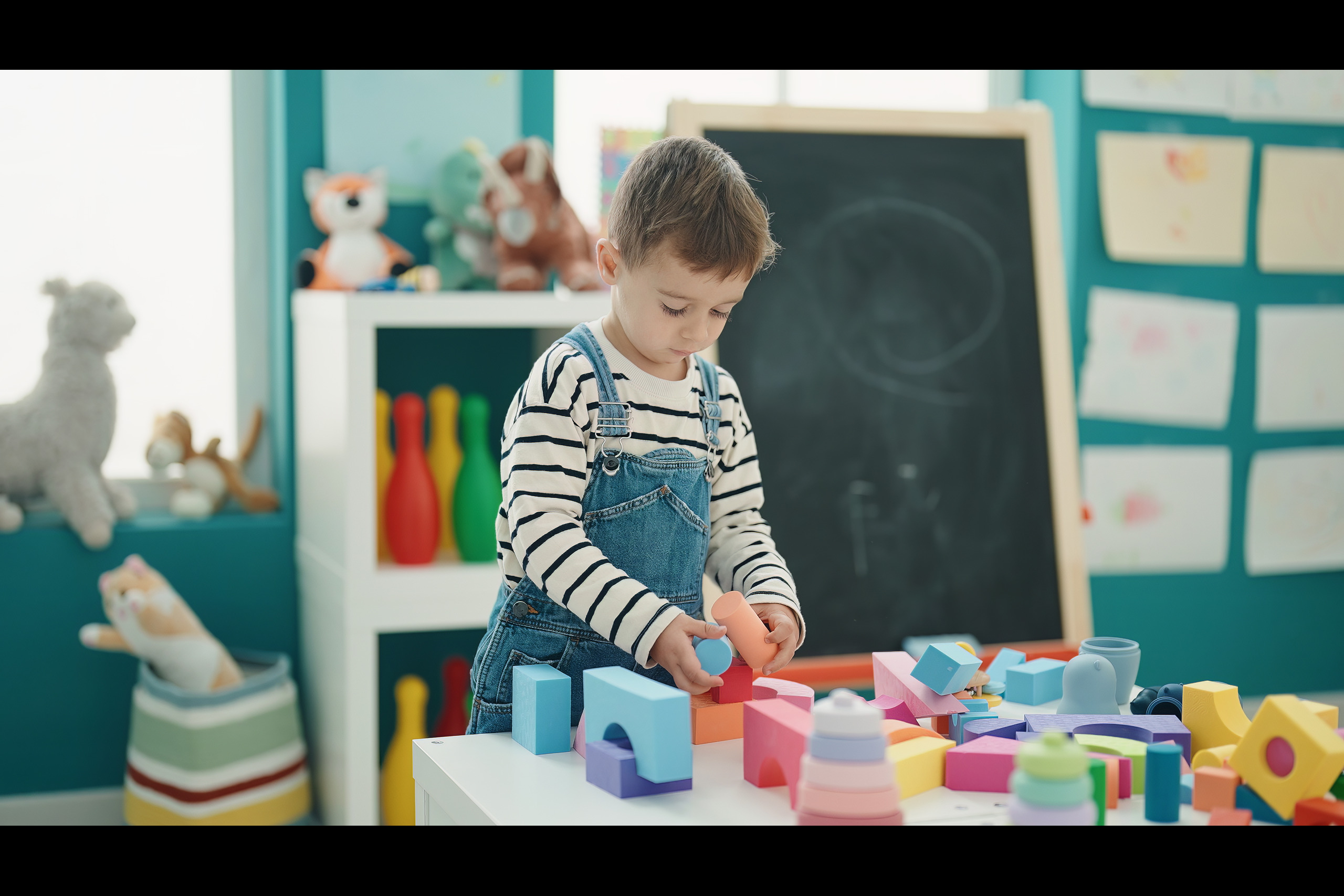But What Is Play-Based Learning Anyway?
Great question. It’s not about just letting kids run wild and hope for the best. Play-based learning is a structured yet flexible approach where play is purposeful and intentional. Teachers carefully create environments and activities that spark curiosity and encourage exploration, while still aligning with key developmental goals.
So yes, while it looks like fun — and it absolutely is — it’s also designed to support skills in language, math, social-emotional development, problem-solving, and more.
Let’s Break Down the Benefits (With Real-Life Examples!)
1. Cognitive Development That Feels Like Fun
Ever watched a child spend 20 minutes trying to stack cups higher than their head? That’s not just cute — it’s cognitive development in action.
In play-based environments, children naturally develop critical thinking skills. They make predictions (“Will this block fall?”), learn cause and effect (“Oops, too many on one side!”), and even experiment with early math (“I need three more blocks!”).
At Leads, our classrooms are filled with materials that challenge the mind without overwhelming it — from puzzles and storytelling prompts to water play experiments.
2. Social Skills Without the Pressure
Have you ever tried to teach a toddler to share using a lecture? Good luck.
But give two kids one pretend pizza in the play kitchen, and suddenly they’re negotiating slices, taking turns, and learning how to manage conflict — all without realizing they’re practicing real-world social skills.
That’s the beauty of play: It’s a natural way for children to build empathy, communication, and cooperation. At Leads, we gently guide those interactions, helping children learn the social “rules” in a way that feels authentic and pressure-free.
Read more about How Nursery Education Supports School Readiness
3. Creativity That Builds Confidence
A child who turns a cardboard box into a spaceship? That’s not just imagination — that’s innovation.
In play-based settings, children are constantly encouraged to explore new ideas and take risks — without fear of being “wrong.” That freedom fosters creativity, resilience, and confidence. Whether it’s painting, dressing up, or building cities out of blocks, we’re giving kids the message: Your ideas matter. Let’s see where they go.
And let’s be real — in a world that’s changing faster than ever, creativity isn’t a “bonus” skill. It’s essential.
4. Emotional Growth in a Safe, Loving Space
You know those days when everything feels like too much? Kids have those, too.
Play is a natural outlet for big feelings. It helps children process emotions, deal with stress, and build self-regulation. Whether it’s pounding clay after a tough morning or acting out a story that mirrors their feelings, play gives children a way to understand the world and their place in it.
At Leads, we intentionally create calm, sensory-rich environments that support emotional well-being and help kids learn to navigate those ups and downs with confidence.
5. Language Skills That Happen Without Flashcards
Children learn language best through… well, using it.
During imaginative play, children narrate stories, assign roles, ask questions, and describe everything from a dragon’s breakfast to a doctor’s instructions. It’s real, functional communication, and it sticks way more than passive learning.
Our educators at Leads are trained to extend those conversations — asking open-ended questions, modeling new words, and turning play into a rich language-building experience.
Why It Works — and Why It Matters at Leads
You might be wondering: Can’t kids just play at home?
Absolutely — and they should! But at a quality early learning center like Leads, play is elevated to an intentional, research-backed tool for holistic development. We’re not just “letting them play.” We’re crafting experiences that align with key learning outcomes, while still respecting the child’s need for joy, movement, and discovery.
And here’s the thing: Play isn’t just prep for school — it is school, especially in those foundational years.
At Leads Early Childhood Center in Dubai, we combine the EYFS framework with the Reggio Emilia approach, allowing children to explore, inquire, and grow — through play, guided by educators who understand the science behind it.
Final Thought: Play is the Work of Childhood
As Fred Rogers once said, “Play gives children a chance to practice what they are learning.” And we see that truth every day.
When we give kids time, space, and support to play with purpose, we’re not just helping them pass the time. We’re laying the foundation for confident, capable, curious learners.
So the next time you see a child knee-deep in finger paint or building a pillow fort, smile. You’re witnessing real education in action.
Want to learn more about how Leads champions play-based learning? Schedule a visit or contact our team today — and come see how learning really comes to life.





